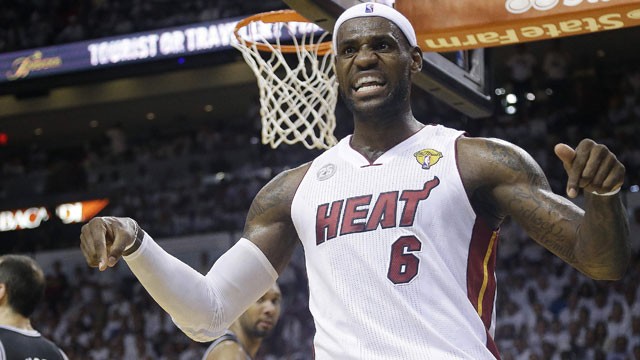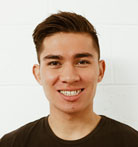
Half Year Review in the US
24 June 2013I’ve been writing this review for the past two weeks, so some of the thoughts in this post come in different parts of my time in the States (on the plane, on the subway, etc). I haven’t done any training whatsoever in that time because I wanted to mentally take a break to look at everything in perspective while I have no games or club training’s in this now European summer break. This is probably the longest personal thing I’ve ever written, but it’s also made me more excited about what’s to come.
Before I left to the States, I Saw an article about the 10,000 hour rule from the Talent Code blog that got me thinking. When I came up with the 20 hour a week schedule back in April 2010, it was inspired by what Malcolm Gladwell had talked about in his book Outliers. Through constant time planning, improvement planning and reviewing, I’ve taken my game from amateur youth, to US college scholarship level, to professional youth level, to actually getting paid to play level, to now..professional lower league senior player level, all in the space of 3 years.
I did that 20 hour schedule for 80-90% of the time for two years. I reduced it to 18 hours a week in early 2012 and then 15 hours a week in September 2012. I reduced it because slowly but surely I kept improving, but felt that I was doing a lot of ‘mindless hours’ that werne’t as it says in the article.
As you read the article more it talks about “US coaches doing exhausting 3 hour sessions” in comparison to Barcelona doing “highly structured, highly intensive 70 minute sessions each day” and I can relate to that as my training at Volendam was a similar experience to that of Barcelona.
Then I read another post which talked about how the great Lebron James improved his game during the NBA lockout.

They tell the story of how LeBron James, basketball’s best player, set out to improve his game. How, in a move straight out of Moneyball, James ruthlessly analyzed his weaknesses and set out to build a new skill set that would make him a more efficient teammate. How he hired a master coach and made himself a humble apprentice, showing up early for each training session, videotaping and studying, in order to learn a new set of scoring moves. How James, in short, turned himself into a master student.
James emerged from that summer transformed. “When he returned after the lockout, he was a totally different player,” [Coach Eric] Spoelstra says. “It was as if he downloaded a program with all of Olajuwon’s and Ewing’s post-up moves. I don’t know if I’ve seen a player improve that much in a specific area in one off season.
And as I finish this post up, Lebron James just won another NBA championship with the Miami Heat and grabbed the finals MVP.
“It’s work,” James says. “It’s a lot of work. It’s being in workouts, and not accomplishing your goal, and paying for it. So, if I get to a spot in a workout and want to make eight out of 10, if I don’t make eight of 10, then I run. I push myself to the point of exhaustion until I make that goal. So you build up that mentality that you got to make that shot and then use that in a game situation — it’s the ultimate feeling, when you’re able to work on something and implement it.
I did something similar to Lebron in the early days in my Budapest garden. I pretended Jose Mourinho was watching me and I’d try to get x number of shots or passes or dribbles. If I failed then I would make myself stay outside in the cold for longer and punished myself with something I hated to do. If I got the target number then I imagined JM was going to sign me! Silly I know, but it made things more enjoyable and added a sense of real pressure. Do any players do this? Because it’s these kind of games which make you better in real-game situations.
Making training as effective as possible
In this moment, there’s a massive inefficiency in team trainings. That is, players don’t have enough time to work on their weaknesses and “develop a new set of skills” like Lebron. Instead the coach makes a plan and the player abides by that plan. That plan may be focused around passing exercises and for the purposes of tactics for the team rather than the individual – but your passing and tactical awareness may be really good already, so practicing that wont be as effective as lets say that your first touch that’s always letting you down on the field. But if you improved it, you could be a completely different player that could use their first touch to create more attacking opportunities and become so much more valuable.
When you’re a senior player, there’s hardly any time and there’s less creativity to play “those little games you played as a kid” that improved your shooting or ball control or first touch. You follow the training that the coach sets out everyday and that’s it. You always hear it by the best players, they’re always learning and looking for ways to improve – that’s what separates them from the rest and that’s exactly what I’ve done in my game. Constant improvement all the time.
As I keep improving myself, I ask what’s the fastest and most efficient way to improve?
1) Playing with better players than me or in a pro, intensive environment daily (Ex: I felt the improvement week-by-week at Volendam, training with Young Socceroos)
2) The Highly Intensive fitness and technical sessions with Moses
3) Setting targets within a time limit (Ex: The juggling test, left foot shooting)
It feels like I’ve said it 100x, but all I need is that foot in the door where I can train and play with one club in a daily environment.
I think my unique advantage as a player is that due to my circumstances (no prior pro experience, etc) and my intelligence in the way I approach improvement and my practical experience in self improvement, with time, I can improve faster and better than anyone else.
I’m on the New York metro now and I’m asking myself if everything I’m doing game realistic? I’ve questioned that over the past week and didn’t feel like training because I don’t want to feel like I’m wasting my time. But I’ve concluded now that everything I do, I really try make game realistic, no doubt about that. The closest thing I can do is try and replicate a world-class environment is pretend that I’m in one when I’m training and try make all the elements of my environment as unforgiving and difficult as possible. That means doing things at fast as possible pace and not getting a touch wrong. That’s the best way to improve in my current circumstances.
And what are my weaknesses right now?
I feel like I’ve now cleared up all my major weaknesses and only have minor weaknesses now. I think what’s missing from my game is the element of drive and hunger which comes with feeling fresh and ready. But getting that feeling comes from good preparation and recovery. No one loves playing when they’re feeling exhausted. Another thing I lack is consistency, which also comes with good preparation and recovery.
As a younger kid in Canberra and in Budapest, I couldn’t wait until the weekends game or the next training or futsal match. Nowadays, when a match is announced, I almost dread it. I get all nervous and agitated about it.
What I loved doing almost as much as playing was preparing myself for it. It would allow me to focus sub consciously and relax. Folding my clothes the night before, laying them out neatly in my wardrobe. Cleaning my boots. Packing my bag with snacks and sports drinks. Having a match day schedule which included when I would wake up, eat, do a pre-warm up, time getting to the venue. Then after the game having a hot shower or bath to completely relax. It’s almost like my zen.
Right now I sleep late, wake up late, rush to eat and rush to do things before I get to the game or training. That’s not how you feel fresh or properly recovered. I also invest alot of emotional and mental energy into putting off gym sessions and personal trainings. I’ll say okay I’m going to the gym at 7pm, but I’ll end up going at 10pm and hate myself for it because the last three hours have been spent anxiously looking at the time and procrastinating. The difference between the 13 year old Nick and the nearly 20-year old Nick is what I do in my time. I don’t just work the same amount as a professional footballer, but I also own not one but two businesses (one online and one offline), on top of that I’m studying full-time for a Bachelor’s degree in university, I have a buzzing social life, a girlfriend and I’ve just recorded three rap songs with my friend in the States, haha! I’ve heard people say that I’m the busiest person they know.. I’m quite proud of that title, but that can effect football and that’s why I need to stick with a strict plan.
Steps I’m going to take now
1) Create 3 versions of personal session workouts with targets and goals that specifically focus on my weaknesses/strengths.
2) Create 3 variations of gym workouts.
Note: With these variations I then can plan specifically what I’m going to do for each day of the week.
3) Finish reading the talent code
4) Better Preparation and Recovery. This means having lots of drinks available, food, snacks, towels, clothes ready for each session, etc.
5) Reduce game analysis to a max of two games a week and only watch when mentally fresh.
New Personal Training Plans
The following plans have been constructed to work on the set of skills in my game that would be most efficient in making me a better player. They all use targets and I will keep track of how I perform in an constantly updated excel sheet. If I consistently reach targets, then targets will be increased or some exercises removed because it’s no longer effective to work on them. Trainings will be added or removed when necessary All these exercises can be done with just one person. All training’s have a few minutes of quick warm up, juggling, stretching, movement.
Training A – Receiving Back to Goal / First Touch
50x first touch left and strike in target (aim: 8/10)
50x touch right and strike in target (aim: 8/10)
– good pace, rest 30 sec – 1 minute rest every 10.
– need a wall
Training B – Creating Opportunities Dribble/Shoot
50x kick ball in air, one touch left or right, dribble towards goal and shoot in target (5/10)
– uses open field
– uses open field
– good pace, rest 30 sec – 1 minute rest every 10.
Training C – Receiving Back to Goal
50x pass against side of wall, one touch and chip shot above black line (7/10)
50x any type of pass against wall, control, turn, pass against wall, receive with 180 degree turn and finish into target (7/10)
– good pace, rest 30 sec – 1 minute rest every 10.
– need a squash court preferably
Gym Workout A – Bodyweight Focused
3 x 18 reps clap pushups
3x 15 reps sideplank star and switch
3 x 18 reps pulsing superman
3 x 10-12 reps Dumbell two-arm shoulder swings
3 x 18 reps pulsing superman
3 x 10-12 reps Dumbell two-arm shoulder swings
3 x 18 reps spiderman pushups
3 x 20 reps bicycle crunches
3 x 20 reps bicycle crunches
3 x 8 reps power cleans
3 x 15 close grip pushups
3 x 15 close grip pushups
Gym Workout B – Explosive Kettlebell Focused
3 x 18 reps alternating one-hand medicine ball pushups
3 x 6-8 reps kettlebell windmill
3 x one minute figure 8 kettlebell
3 x 12 reps clean and jerk w/ kettlebell
3x 15 reps abdominal hip thrusts
3x 12 reps one-hand/two-hand kettlebell swings
3x 15 reps abdominal hip thrusts
3x 12 reps one-hand/two-hand kettlebell swings
3 x 10-15 reps handstand pushup
3 x 18 reps full body extension and ab crunch and russian oblique twist
3 x 18 reps full body extension and ab crunch and russian oblique twist
Gym Workout C – Foundation Weights Focused
3 x 8-12 reps regular benchpress (60 – 70 kg)
3 x 8 – 12 reps seated row (50kg)
3 x 6-10 reps pullups/chinups
3 x 15 reps dumbell side bend
3 x 15 reps dumbell side bend
3 x 15 reps chest machine
3 x 15 reps biceps machine/standing preacher curls
3 x 8 – 12 lat pulldown (50kg)
Other exercises I couldn’t fit in (save for later)
romanian deadlift
1 Arm / 1 Leg Contralateral Dumbbell
cat vomit
myotatic crunch
cat vomit
myotatic crunch
captains chair
Goal Journal
Long term goals
Play professionally by end of summer 2013
Short term goals
1. improve my confidence on:
- 1-on-1’s
- Receiving with back to ball
& become a more valuable player by.. - Looking for more ways I can get on the ball
may – Getting on the ball more by positioning oneself on edge of box for 1 touch, shot.
june – Making inside runs, you can get on the ball so much more as I found in training this week.
june – Coach pointed out to me whilst playing, don’t be static, move & move. I think he was right and just maybe the answer to getting on the ball more.
2. make a real habit of scanning alot
I think this is becoming better.. but not a habit.
General comment: Improving, and I really want to shine more out of tight positions.
3. Ongoing – Find out what makes great players, great. What separates the “great” from the “good”.
4. Defend better
a. communication
b. knowing who should be marking who.figuring this one out…
b. knowing who should be marking who.figuring this one out…
As a right winger I don’t think I really have problems defending. Communication also improving.
watch for preferred foot of the player
5. Build LinkedIn network
Added a few contacts..
6. Plan better.
I need to be more efficient about exactly what I’m going to do in my workouts, rather than just make it up as I go.
Took a major step in this review. This is basically completed.
Plan & Checklist – (10 hours roughly due to holiday period)
Monday: 2:30pm workout C & Training C @ science park
Tuesday: Damsko Training 12:15 – 2:15pm
Wednesday: 8pm training A @ biljmer
Thursday: 12pm workout A & training C
Friday: analyze confederations cup
Saturday: analyze confederations cup
Sunday: analyze confederations cup
Reply (0)


 In 2009, I was an average soccer player with a dream. I started this blog to document my journey from local underdog to getting offered over $100,000 in soccer scholarships, a contract to play professionally and the experience of playing in Europe.
In 2009, I was an average soccer player with a dream. I started this blog to document my journey from local underdog to getting offered over $100,000 in soccer scholarships, a contract to play professionally and the experience of playing in Europe.


Leave a Reply